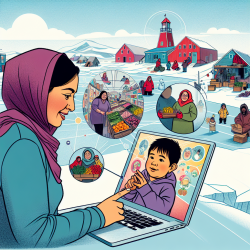Introduction
In the ever-evolving landscape of global health, ensuring equitable access to medical care for under-five children in rural areas remains a significant challenge. The study titled "Service availability and association between Mutuelles and medical care usage for under-five children in rural Rwanda: a statistical analysis with repeated cross-sectional data" sheds light on how community-based health financing programs like Mutuelles can transform healthcare access in resource-poor settings.
The Impact of Mutuelles
The Mutuelles program in Rwanda has been pivotal in reducing financial barriers to healthcare access for rural households. By enrolling in Mutuelles, families gain access to a comprehensive range of child health services, including preventive, promotional, and curative care. This study highlights how Mutuelles has significantly increased the likelihood of medical care utilization among under-five children, particularly those living in poverty.
Key Findings from the Study
- Increased Medical Care Utilization: The study found that children enrolled in Mutuelles were more likely to use medical care than their uninsured counterparts. This trend was consistent in both 2005 and 2010.
- Improved Service Availability: Between 2005 and 2010, there was a marked increase in the availability of health facilities, medical staff, and child health services in Rwanda. This improvement in service delivery contributed to higher medical care utilization rates.
- Equity in Access: The program benefited children from impoverished backgrounds as much as, if not more than, those from wealthier households. This was a significant step towards achieving equity in healthcare access.
Lessons for Practitioners
For practitioners looking to enhance their skills and make a meaningful impact in similar settings, the study offers valuable insights:
- Focus on Service Availability: Strengthening the supply side of healthcare by improving service availability and quality is crucial. Practitioners should advocate for policies that enhance the capacity of health facilities and increase the number of trained medical staff.
- Promote Community-Based Financing: Community-based health financing programs like Mutuelles can be effective in breaking down financial barriers to healthcare access. Practitioners should explore the feasibility of implementing similar programs in their regions.
- Address Socio-Demographic Barriers: Factors such as maternal education and geographic accessibility significantly impact healthcare utilization. Practitioners should work towards improving women's education and enhancing the physical accessibility of health facilities.
Encouraging Further Research
While this study provides valuable insights, it also highlights the need for further research. Practitioners and researchers should consider the following areas for future exploration:
- Longitudinal Studies: Conducting longitudinal studies can help identify causal relationships between health financing programs and healthcare utilization.
- Impact of Policy Changes: Investigating the effects of policy changes, such as the exemption of premiums for the poorest households, can provide deeper insights into the program's impact.
- Cross-Country Comparisons: Comparing the outcomes of similar programs in different countries can offer valuable lessons and best practices.
To read the original research paper, please follow this link: Service availability and association between Mutuelles and medical care usage for under-five children in rural Rwanda: a statistical analysis with repeated cross-sectional data.










